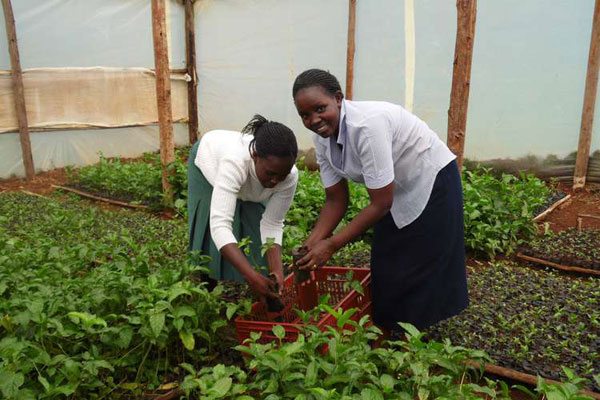A few kilometres from Bomet town, at the African Inland Church, Boito, is a greenhouse teeming with passion fruit seedlings at various stages of growth.
This is the project of a 20-member youth group that is made up of 11 women and nine men. All are members of the church, who came together after getting training on passion fruit farming from an agricultural organisation.
“We started the project in March last year to get some income for our sustenance, and also because it is a new venture in the South Rift, where passion fruit farming is taking root,” says Dan Langat, the chairman of Passion World Horticultural Group.
Members parted with Sh1,000 each, which they used to buy their first polythene bags, watering cans, fertiliser and chemicals.
“We grow the crops in a 15m by 30m greenhouse whose construction was done by the organisation that trained us. A 15 by 30m greenhouse averages Sh250,000 but modification through use of locally available materials reduces the cost significantly. We used wood and second-hand polythene sheets to build the facility,” says Langat, noting they graft the yellow and the purple passion fruits to achieve a blend of the two.
Yellow passion fruit has a strong root system, longer lifespan and is resistant to most diseases though it yields less fruits while the purple variety has high-flowering and fruiting ability, but with a shorter lifespan and a weak root system.
DELICATE SEEDLINGS
“We use the yellow passion fruit to form the rootstock while the other variety the scion. The end product has a strong root system, is disease-resistant and offers more yields combined,” he explains, adding that they started by establishing nursery beds with a kilo of seeds of each variety.
They source the yellow variety seeds from Makueni while the purple from Eldoret, with a kilo of the former going for Sh5,000 while the latter for between Sh3,000 and Sh4,000.
For the purple variety, they established a seedbed where they get scions from the branches but for the yellow variety, they have to plant afresh every time because each seedling goes with its rootstock.
To make the seedbeds, they raise the soil to about 20cm and then add an inch of baked soil and sand. The soil, because of the heat, is free of diseases.
“We normally soak the seeds for 48 hours to help soften the cover for faster germination. Before that, we scrub the seeds with sand. The two processes help to break dormancy.”
They plant the seeds on the bed, cover with a layer of sand and mulch with grass. Continuous watering makes the seeds sprout after 14 days and in another two weeks, they are transferred to the polythene tubes. They stay there for about a month until they attain 30-45cm, the height ideal for grafting.
The grafting process is delicate, thus, demands precision. The rootstock is sliced at the top and the stem split to form a groove. The scion is a two-inch branch of the purple passion fruit with a bud and is neither woody nor too young.
A wedge shape is created to fit into the split in the rootstock and the two pieces are bound tightly using a polythene sheet to prevent water and air.
“For two to three weeks, we water the grafted seedlings and apply fertiliser to ensure they grow well. We also remove suckers from the rootstock to promote the growth of the scion after which we harden them by exposing the seedlings to sunlight for two weeks before they are ready for planting in the main field,” Langat adds.
DORMANCY LEVELS
The group has so far raised over 30,000 seedlings, which they sell to farmers at Sh40 each.
From the earnings, the group paid members a Christmas bonus last year and used the balance to expand their project, of course after tithing to the church. They now have another greenhouse where they have planted tomatoes. Members also earn some money by working in their greenhouse regularly.
Dr Bernard Towett of Egerton University’s Department of Crops, Horticulture and Soils, says passion fruits are among crops whose seeds have a high dormancy level.
The scrubbing using sand is known as scarification and it is vital in aiding the seeds to germinate faster. They can stay in the soil for long if the process is not done.
“Scrubbing reduces the strength of the seed cover and, thus, the crops will sprout while growing seed in sand helps generate heat that leads to faster germination,” Dr Towett says.








